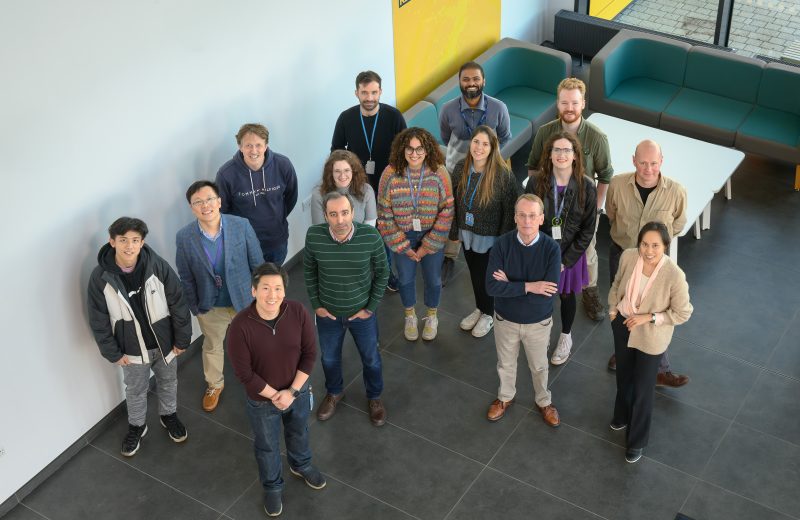A new national facility has been funded through the UK Research and Innovation (UKRI) Infrastructure Fund, which will house the world’s most powerful high energy electron microscope and support UK scientific research. The facility is a collaboration between the University of Liverpool, Science and Technology Facilities Council (STFC) and the Rosalind Franklin Institute.
The facility, known as RUEDI (Relativistic Ultrafast Electron Diffraction and Imaging), will position the UK as a world leader in electron ultrafast microscopy and will support multi-disciplinary research in key scientific and technological areas.
The instrument will allow dynamic study of biological and chemical processes in ‘real time’ and at the femtosecond timescale – that’s one quadrillionth of a second or faster.
On the femtosecond timescale we can watch atoms move and interact. For example, the retinal molecule, which is found in the rod cells in your eye, undergoes a chemical reaction which takes 200 femtoseconds and allows us to detect light.
Professor Angus Kirkland, Science Director at the Rosalind Franklin Institute, Chair of Materials at the University of Oxford, and RUEDI Lead for Life Sciences, said, “We are thrilled to be part of this partnership with the University of Liverpool and STFC.
“This project has great potential to revolutionise how we see life, using this technology we will be able to see interactions happening within a cell at molecular resolution. This will give us new insights into biology and will hopefully open the door to the discovery of new medicines.”

For life sciences, this exceptional instrument will allow look at thicker samples than can currently be imaged. The facility will be able to image samples with a penetration depth around 10 micrometres. This will allow researchers to look at whole eukaryotic cells at unprecedented resolution.
The ability to image thicker samples in addition to observing complex dynamic process in real time will be revolutionary for the life sciences and medicine, for example allowing us to directly observe the effects of drug action within cells and cellular components.
The team hope to first apply this technology to studying cardiac disease and viral invasion of cells hoping to provide key insights which may lead to the development of new therapeutics and diagnostics.
Professor Nigel Browning, Chair of Electron Microscopy in the School of Engineering at the University of Liverpool, and RUEDI project lead, said, ““This announcement is excellent news for the University of Liverpool, for the North West region and for the UK scientific community.
“RUEDI is the first facility to allow the evolution of structural changes in materials to be observed and determined through time-resolved experiments, rather than by static structure. This ground-breaking capability will help researchers develop the new technologies and solutions needed to address some of the most pressing challenges of our time.”
“This ground-breaking capability will help researchers develop the new technologies and solutions needed to address some of the most pressing challenges of our time.”
Starting construction in 2027 and opening in 2032, RUEDI will be located at the SciTech Daresbury Science and Innovation Campus. RUEDI will be a globally unique national user facility.
Professor Mark Thomson, Executive Chair for the Science and Technologies Facilities Council and Infrastructure Champion for UKRI said of the UKRI investment supporting the programme, said: “Through these investments UKRI continues to equip the research and innovation community with the tools it needs to explore and develop the science and technologies needed for the coming decades. The long-term nature of this investment also helps to maintain the UK’s key position on the world stage of research and innovation for the future.”
Secretary of State for Science, Innovation and Technology, Michelle Donelan, said: “As science and technology develops faster than ever, it is vital we ensure UK innovators have the right tools at their disposal to continue ground-breaking work from revolutionising medicine to protecting the world we live in for generations to come.
“From digitising millions of specimens to help halt future pandemics, to building the most powerful microscope of its type right here in the UK to improve drug design, to better information sharing between labs, our £473m investment infrastructure will set the conditions that allow our brightest minds to thrive and build a healthier and more prosperous UK.”
Find out more about the RUEDI on the website: https://ruedi.uk/